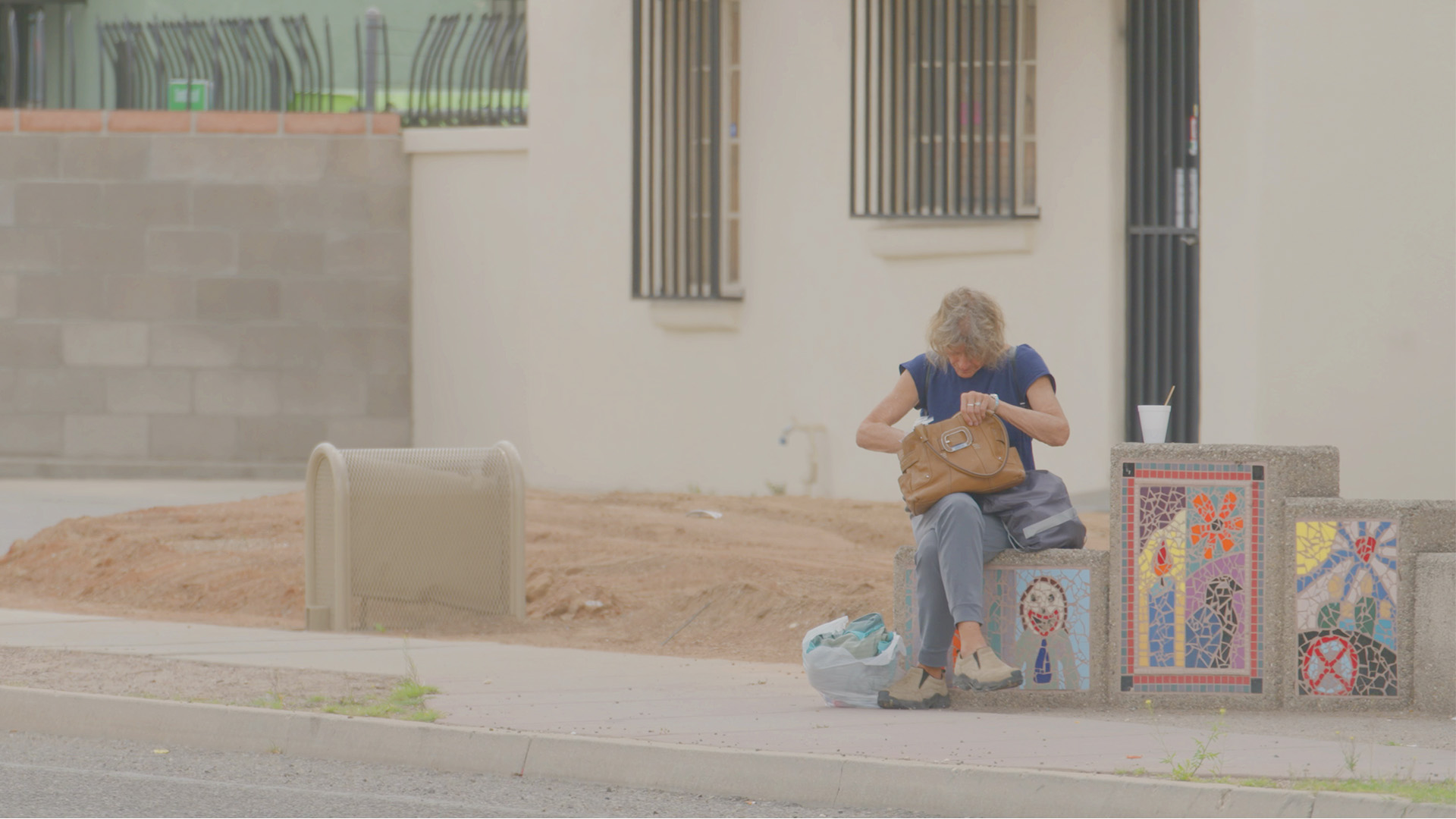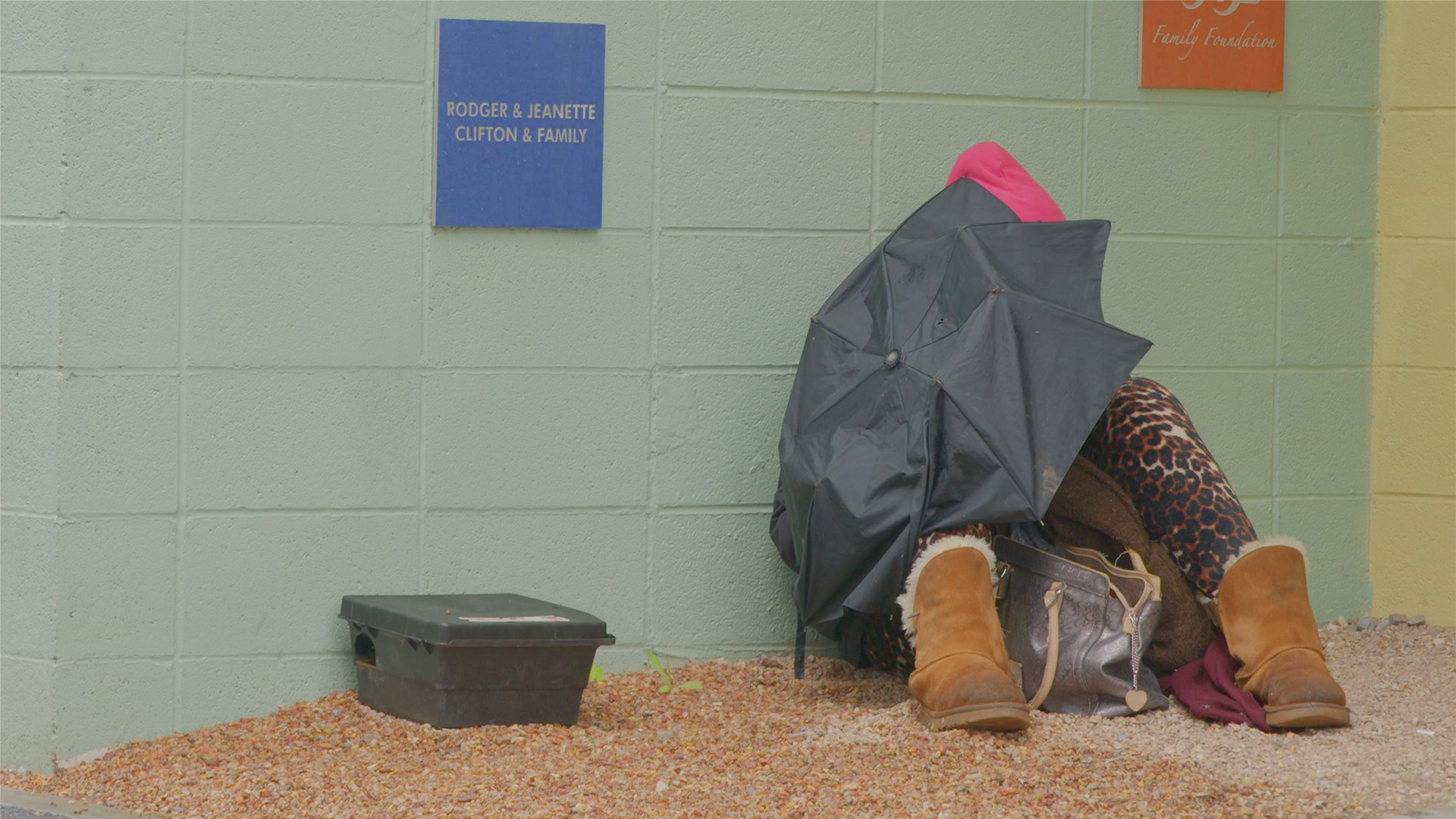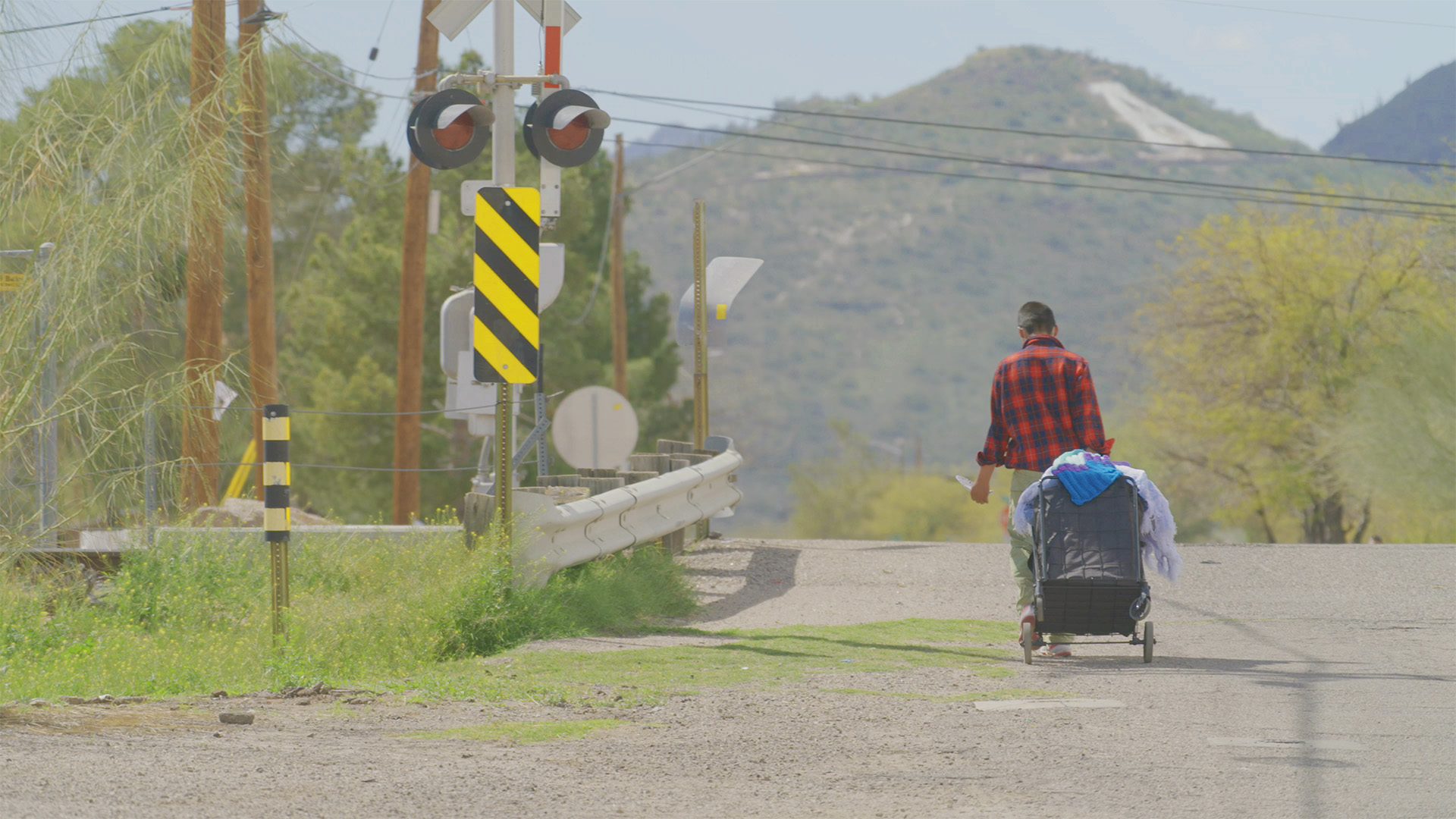Somedays, Sister José Women’s Center has a line out the door. Every chair inside is taken and there are women standing without a place to sit, Nicola Hartmann, CEO of the shelter said.
For almost 15 years, Sister José’s has been serving Tucson’s unsheltered women, giving them a place to sleep, eat and shower. In the coming months, the shelter will be expanding with help from a grant funded by the city.
The expansion will include 13 beds added to the existing group of 42; three more showers will be installed as well as two additional bathroom stalls. The current sleeping space is also being revamped to accommodate women using wheelchairs or walkers and those who need room for their pets, Jennifer Edwards, director of operations, said.
 This person is one of many facing homelessness in and around Tucson. On this particularly cold and rainy day, she like many others didn't have access to proper clothing or shelter.
This person is one of many facing homelessness in and around Tucson. On this particularly cold and rainy day, she like many others didn't have access to proper clothing or shelter.
AZPM spoke with one guest at Sister José’s who is not sharing her name to remain safe. She said she was given 28 days to leave her last apartment when the new owners threatened eviction. It was her first time experiencing homelessness, and she said she often contemplated why it was happening.
“I think to myself sometimes: ‘It was me.’ But I don’t do drugs, I don’t drink. I work five, six days a week. I’m looking for a second job now,” the guest said.
She was working full time but only had enough to pay the bills — not enough to pay rent anywhere else. She said she alternated between her car and motels before finding Sister José’s.
“I had nobody and they’re here for me,” she said, through tears.
Penny Buckley is the nonprofit’s director of grants. She said that years ago when founder Jean Fedigan was volunteering at homeless shelters, she saw no beds anywhere for women. While there are more women’s shelters in Tucson today, many still remain under the radar to keep their clients safe, Tucson Vice Mayor Kevin Dahl said.
“Unhoused women are a hidden group because they hide to keep themselves safe,” Hartmann said.
 For unhoused women, weather can present dangerous predicaments. This woman spent the entire night in the rain, unable to sleep.
For unhoused women, weather can present dangerous predicaments. This woman spent the entire night in the rain, unable to sleep.
The shelter is open for women of all ages, but recent trends in Pima County show an increase of elderly people experiencing homelessness, Dahl said, as housing prices skyrocket and retirement and social security benefits remain fixed.
Hartmann added that one woman Sister José’s took in was 87 years old and blind.
Tia Nichols is the program director at Sister José Women’s Center. She said women who are admitted into the shelter start with a one-week stay, but if they are granted a longer term, they begin the Impact Project which sets them up with a case manager to determine their next steps.
 The unhoused often have to travel throughout the city looking to find safe places to settle for the night.
The unhoused often have to travel throughout the city looking to find safe places to settle for the night.
The guest AZPM spoke with was provided a three-month stay with Sister José’s free of rent after two weeks of staying there. She said this will allow her to save up her checks for permanent housing to “live again as a full person.” She said she is grateful to the volunteers at the shelter who do not have an easy job caring for a center full of women.
“Our volunteers allow us to say yes to so many more women,” Hartmann said.
Judie Raffety, one of those volunteers, said she comes from a relatively privileged background but felt the need to help the community knowing so many women were on the street.
Raffety and her fellow volunteers join their hands together in a huddle at the end of a long day, count to three and say “Girl power!”

By submitting your comments, you hereby give AZPM the right to post your comments and potentially use them in any other form of media operated by this institution.